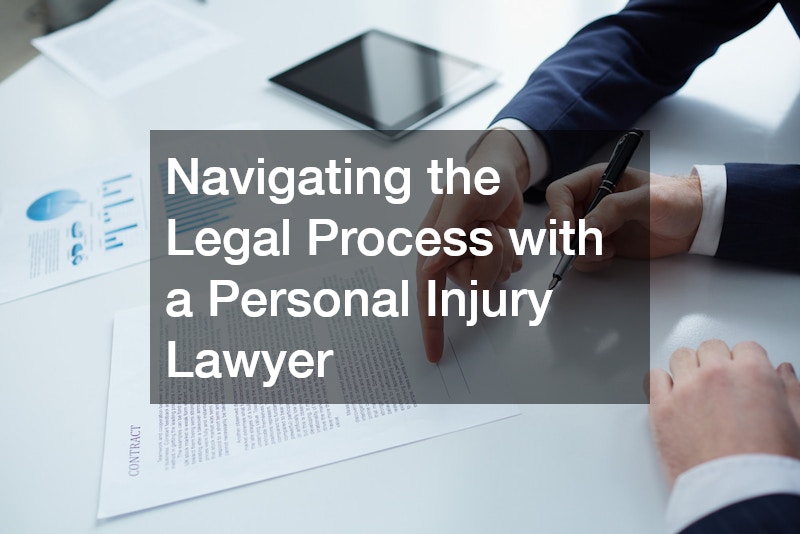Experiencing an accident can be a life-altering event, leaving victims with distress, injuries, and financial burdens. The complex process of obtaining fair compensation for injuries and damages is often daunting for individuals who are already dealing with the aftermath of an accident. This is where a personal injury lawyer steps in, serving as a pivotal ally in navigating the legal landscape. By understanding the role of a personal injury lawyer, you can better appreciate the invaluable support they provide, ensuring that victims can focus on recovery.
In this article, we delve into the various ways personal injury lawyers assist after an accident, highlighting their importance in the recovery process.
Understanding the Role of a Personal Injury Lawyer
A personal injury lawyer specializes in tort law, which covers civil litigation for wrongs or injuries caused by negligence. Their primary role is to represent those who have been harmed due to another’s actions or negligence. They possess a deep understanding of personal injury laws and are equipped with the skills needed to handle complex cases efficiently. Personal injury lawyers work closely with clients, providing legal advice and formulating strategies to ensure a favorable outcome. This involves gathering evidence, consulting medical experts, and presenting compelling arguments in court if necessary.
These legal professionals are well-versed in assessing the extent of damages and the impact of injuries on the victim’s life. With their expertise, they aim to secure compensation that reflects the true cost of the incident, including medical expenses, loss of income, and emotional distress. A personal injury lawyer’s proficiency in negotiating with insurance companies is crucial in achieving fair settlements. They understand the tactics insurers might use to minimize payouts and are prepared to counter these strategies effectively. Furthermore, their dedicated advocacy ensures that their clients’ rights are upheld throughout the claims process.
Personal injury lawyers often work on a contingency fee basis, meaning they only get paid if the client wins the case. This approach allows victims access to legal services without the need for upfront payments, removing financial barriers to seeking justice. By handling communication with insurance companies and the opposing party, personal injury lawyers relieve clients of this burden, allowing them to concentrate on healing. Their role extends beyond just legal representation, offering clients empathy and guidance during emotionally challenging times. Overall, the expertise and support of a personal injury lawyer are indispensable for achieving justice and compensation post-accident.
Importance of Timely Action in Personal Injury Cases
Timeliness is critical in personal injury cases, as it can significantly impact the outcome of a claim. Filing a claim promptly ensures that evidence is preserved and witnesses remain readily available. The statute of limitations, which varies by jurisdiction, defines the time frame within which a lawsuit must be filed. Missing this deadline can result in the forfeiture of the right to seek compensation, regardless of the case’s merit. A personal injury lawyer is instrumental in ensuring that all legal deadlines are met, protecting their client’s ability to claim damages.
Prompt action also helps in gathering and documenting vital information related to the accident. Over time, critical evidence such as surveillance footage may be lost or become inaccessible. Additionally, the memories of eyewitnesses can fade, leading to weaker testimonies or contradictions. A personal injury lawyer works diligently to secure all necessary documents and details immediately after the accident, bolstering the case. This proactive approach enhances the chances of a successful settlement or trial outcome.
Engaging a personal injury lawyer soon after an accident allows for timely negotiations with insurance companies. Early involvement ensures that the lawyer can address any initial lowball offers by insurers, advocating for a settlement that truly reflects the victim’s needs. Moreover, personal injury lawyers can guide their clients on documenting their medical treatments and financial losses, creating a comprehensive record for the claim. This strategic documentation is paramount in calculating and justifying the compensation sought. In essence, timely legal intervention aids in building a strong, compelling case that stands up to scrutiny.
Navigating the Legal Process with a Personal Injury Lawyer
The legal process following an accident can be complicated, encompassing various stages from discovery to settlement negotiations or trial. A personal injury lawyer’s expertise is crucial in managing these complexities and steering the case towards a positive resolution. They handle all aspects of pre-trial preparation, including filing necessary documents and managing communications with opposing counsel. A thorough understanding of legal procedures allows them to identify the optimal course of action for each unique case. By strategizing effectively, personal injury lawyers aim to expedite the legal process while maximizing the client’s compensation.
Personal injury lawyers also play a critical role in court, should the case proceed to trial. Their ability to present evidence compellingly and cross-examine witnesses effectively can sway the jury’s decision. Additionally, they are adept at countering the defense’s tactics, utilizing legal precedents and statutes to support the client’s position. Their experience in the courtroom provides a significant advantage, ensuring that the client’s story is powerfully conveyed. Even if the trial is avoided through settlement, the lawyer’s negotiation skills are crucial in achieving a fair outcome.






